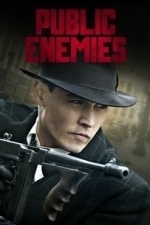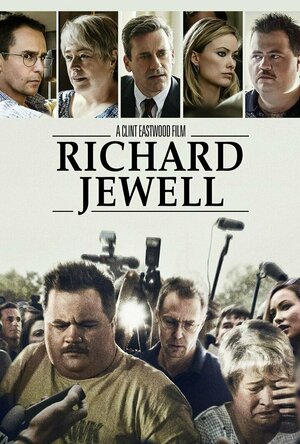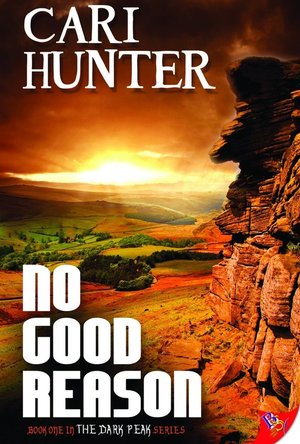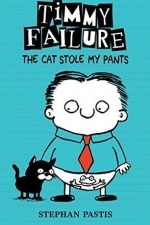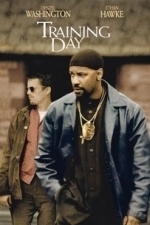Search
Chris Sawin (602 KP) rated Public Enemies (2009) in Movies
Jun 22, 2019
The year is 1933 and bank robberies are at an all time high. John Dillinger, Baby Face Nelson, and Pretty Boy Floyd are at the top of their game. In the public eye, robbers are looked at as heroes instead of criminals. Dillinger enjoys the fruit of his labor to the fullest until the day Melvin Purvis is put in charge of the FBI division down in Chicago. Word traveled fast of how one of FBI's top agents (Purvis) took down Pretty Boy Floyd and hopes are high that he can help in the newly announced "war on crime." Once Purvis arrived in Chicago, the crime wave of the 30's that was on a steady uprise took a drastic decline. Bank robberies were never the same as Dillinger's friends began dropping like flies. As Dillinger's motto of not thinking about tomorrow since he's too busy enjoying today comes back to haunt him, he soon realizes that he can only hide for so long and that the feds will catch up with him sooner or later.
The most noticeable thing about the film is its cinematography. Michael Mann has used the same method of shooting Public Enemies with HD digital cameras like he did with Collateral. This could be a hassle to some viewers as the picture isn't as shaky as it was in something like Cloverfield, but isn't as crystal clear and steady as you may have found in some of Mann's earlier work like Heat or most other films, for that matter. Perspective plays a huge role in this film. Certain lighting seems to come off better being shot in HD digital and it certainly shows, but the imperfections seem to give the film more character. Some people might throw the word, "edgy," around, but we'll settle on saying this style of filming feels like a more realistic approach. It makes the audience feel like they're actually amongst these gangsters during their heyday.
It almost felt like Christian Bale didn't really want to be there. Between this and Terminator: Salvation, he's really lacking the charisma and talent he's shown in films like The Prestige and The Machinist or even American Psycho. Maybe he's just hit his peak and has nothing else up his sleeve to wow audiences. Bale has hit an eye-catching slump, which is hard to say since this is coming from a long time fan. As long as he continues to be cast in big budget films though and those films wind up doing extremely well at the box office, then not many people are going to notice a difference in the actor's lackluster performance.
Johnny Depp, on the other hand, stole every scene he was in. His cockiness and confidence in his abilities in what he does just gave life to Dillinger that makes you generally like him. You want to see him escape as soon as he gets caught, pull off that next big robbery, and succeed at everything he does so he can run off with Billie Frechette (Marion Cotillard) and live happily ever after. His dialogue is also generally pretty incredible. In the scene where he's confronting Agent Purvis from behind bars, Dillinger is asking Purvis about what it was like to kill a man. How their eyes looked and how you can literally watch a man just drift away by staring into their eyes while they're dying. That that whole experience could keep a man up at night. Purvis asks Dillinger what keeps him up at night. Dillinger, who always seemed to be chewing gum, replies, "Coffee." Dillinger just felt like one of Depp's better acting roles, as of late. He showed more emotion than we're generally used to seeing from him and it was just an incredibly strong performance from the Oscar nominee.
The film has a lot of great dialogue, intriguing character interaction, and it's interesting watching the story unfold of how the crime wave of the 30s may have come to an end, but what really makes the film worth seeing is the shootouts. Any scene that begins with somebody holding a gun is worth getting excited over. There's a scene in the woods in the latter half of the film that is worth the price of admission alone. It takes place at night and everything is littered with darkness until the tommy guns make an appearance. The way the guns light up everything else around the characters firing them was a nice touch. Small explosions erupting from a chamber every time somebody pulled the trigger. This is some of the best gunfire to ever be filmed.
When it comes to Public Enemies, it is one of the best films of the year which is mentioned in at least one of the TV spots. Anyone who was a fan of Michael Mann's previous films (or gangster films, in general) will more than likely walk away from this film satisfied. Johnny Depp is still at the top of his game while Christian Bale seems to be winding down. Public Enemies is a film worthy of the summer blockbuster season which will satisfy the appetite of any fan of crime films.
The most noticeable thing about the film is its cinematography. Michael Mann has used the same method of shooting Public Enemies with HD digital cameras like he did with Collateral. This could be a hassle to some viewers as the picture isn't as shaky as it was in something like Cloverfield, but isn't as crystal clear and steady as you may have found in some of Mann's earlier work like Heat or most other films, for that matter. Perspective plays a huge role in this film. Certain lighting seems to come off better being shot in HD digital and it certainly shows, but the imperfections seem to give the film more character. Some people might throw the word, "edgy," around, but we'll settle on saying this style of filming feels like a more realistic approach. It makes the audience feel like they're actually amongst these gangsters during their heyday.
It almost felt like Christian Bale didn't really want to be there. Between this and Terminator: Salvation, he's really lacking the charisma and talent he's shown in films like The Prestige and The Machinist or even American Psycho. Maybe he's just hit his peak and has nothing else up his sleeve to wow audiences. Bale has hit an eye-catching slump, which is hard to say since this is coming from a long time fan. As long as he continues to be cast in big budget films though and those films wind up doing extremely well at the box office, then not many people are going to notice a difference in the actor's lackluster performance.
Johnny Depp, on the other hand, stole every scene he was in. His cockiness and confidence in his abilities in what he does just gave life to Dillinger that makes you generally like him. You want to see him escape as soon as he gets caught, pull off that next big robbery, and succeed at everything he does so he can run off with Billie Frechette (Marion Cotillard) and live happily ever after. His dialogue is also generally pretty incredible. In the scene where he's confronting Agent Purvis from behind bars, Dillinger is asking Purvis about what it was like to kill a man. How their eyes looked and how you can literally watch a man just drift away by staring into their eyes while they're dying. That that whole experience could keep a man up at night. Purvis asks Dillinger what keeps him up at night. Dillinger, who always seemed to be chewing gum, replies, "Coffee." Dillinger just felt like one of Depp's better acting roles, as of late. He showed more emotion than we're generally used to seeing from him and it was just an incredibly strong performance from the Oscar nominee.
The film has a lot of great dialogue, intriguing character interaction, and it's interesting watching the story unfold of how the crime wave of the 30s may have come to an end, but what really makes the film worth seeing is the shootouts. Any scene that begins with somebody holding a gun is worth getting excited over. There's a scene in the woods in the latter half of the film that is worth the price of admission alone. It takes place at night and everything is littered with darkness until the tommy guns make an appearance. The way the guns light up everything else around the characters firing them was a nice touch. Small explosions erupting from a chamber every time somebody pulled the trigger. This is some of the best gunfire to ever be filmed.
When it comes to Public Enemies, it is one of the best films of the year which is mentioned in at least one of the TV spots. Anyone who was a fan of Michael Mann's previous films (or gangster films, in general) will more than likely walk away from this film satisfied. Johnny Depp is still at the top of his game while Christian Bale seems to be winding down. Public Enemies is a film worthy of the summer blockbuster season which will satisfy the appetite of any fan of crime films.
JT (287 KP) rated Richard Jewell (2019) in Movies
Mar 10, 2020
Richard Jewell (Paul Walter Hauser) is a softly spoken, overzealous university campus security guard whose heart is in the right place and is dedicated to his job – maybe a little too much.
When he discovers a backpack containing a pipe bomb at a celebratory music concert at the 1996 Summer Olympics in Atlanta, his quick thinking saves countless lives. Unfortunately for Richard, he becomes the prime suspect in the investigation and with it, his life is turned upside down as he’s thrust into the media spotlight.
Directed by Clint Eastwood Richard Jewell follows in similar vein to films like American Sniper and The 15:17 to Paris where the central characters struggle with the media attention they receive in the aftermath of events.
The scene during the concert is recreated with meticulous precision and attention to detail and there is genuine tension as you realise that at any point the bomb is going to explode. The investigation is led by FBI agent Tom Shaw (Jon Hamm) who with little to go on places Richard in the spotlight and will stop at nothing to prove his guilt, using every trick in the book to get Richard to confess.
Atlanta Journal-Constitution journalist Kathy Scruggs played by Olivia Wilde was portrayed unfairly for implying that she traded sex for stories. Having died in 2001 she was not around to defend herself, which is a black mark for Eastwood on an otherwise very well directed film.
The journal ran the story much to the delight of Scruggs, but it painted Jewell as the villain causing considerable pain to him and his mother Bobi (Kathy Bates) who delivers another acting masterclass in her supporting role. Scruggs realised her error later on but it was too little too late as the damage to Jewell’s reputation had already been done.
One of the highlights of the film is the relationship between Richard and attorney Watson Bryant (Sam Rockwell). It’s very heartwarming as Watson stood by him until the end even right up to the point of passing on that the real bomber, Eric Rudolph, had confessed to the crime. Richard Jewell is not a gripping film outside of the first half but it’s a powerful watch heightened by excellent acting.
When he discovers a backpack containing a pipe bomb at a celebratory music concert at the 1996 Summer Olympics in Atlanta, his quick thinking saves countless lives. Unfortunately for Richard, he becomes the prime suspect in the investigation and with it, his life is turned upside down as he’s thrust into the media spotlight.
Directed by Clint Eastwood Richard Jewell follows in similar vein to films like American Sniper and The 15:17 to Paris where the central characters struggle with the media attention they receive in the aftermath of events.
The scene during the concert is recreated with meticulous precision and attention to detail and there is genuine tension as you realise that at any point the bomb is going to explode. The investigation is led by FBI agent Tom Shaw (Jon Hamm) who with little to go on places Richard in the spotlight and will stop at nothing to prove his guilt, using every trick in the book to get Richard to confess.
Atlanta Journal-Constitution journalist Kathy Scruggs played by Olivia Wilde was portrayed unfairly for implying that she traded sex for stories. Having died in 2001 she was not around to defend herself, which is a black mark for Eastwood on an otherwise very well directed film.
The journal ran the story much to the delight of Scruggs, but it painted Jewell as the villain causing considerable pain to him and his mother Bobi (Kathy Bates) who delivers another acting masterclass in her supporting role. Scruggs realised her error later on but it was too little too late as the damage to Jewell’s reputation had already been done.
One of the highlights of the film is the relationship between Richard and attorney Watson Bryant (Sam Rockwell). It’s very heartwarming as Watson stood by him until the end even right up to the point of passing on that the real bomber, Eric Rudolph, had confessed to the crime. Richard Jewell is not a gripping film outside of the first half but it’s a powerful watch heightened by excellent acting.

Creating Wealth Video Podcast with Jason Hartman | No-Hype Real Estate Investing Strategies for Achieving Financial Freedom
Podcast
Companion to Jason Hartman’s highly acclaimed Creating Wealth Show (audio podcast) Learn fresh new...

The Curse of Cash
Book
From the New York Times bestselling author of This Time Is Different, "a fascinating and important...
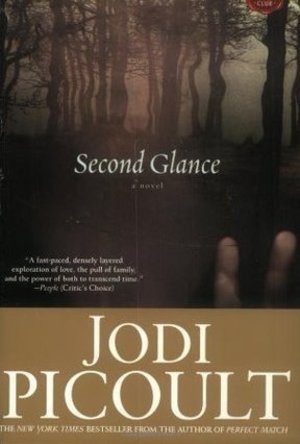
Second Glance
Book
When odd, supernatural events plague the town of Comtosook, a ghost hunter is hired by the developer...
honingwords (32 KP) rated No Good Reason in Books
Jul 5, 2018
Cari Hunter is most definitely as top notch a writer as you are going to find in crime/thriller writing.
Cari Hunter’s Dark Peak crime series, starting with No Good Reason, was recommended to me by a Lesfic author. I reckon you have to be pretty good for your peers to claim you are ‘top notch’ and after reading four of her books in quick succession I can guarantee that Cari is most definitely as top notch a writer as you are going to find in crime/thriller writing.
Let me admit to you that I generally find crime novels too much hard work to follow. I like my books to be romances, and the sexier the better. I’m surprised as all get out to find I love Cari’s thrilling ride through these Police stroke Hospital novels. Especially as there is almost no juicy sex to lubricate the grit. The infrequency of sex scenes is because the main characters, Sanne and Meg, aren’t officially a couple. Or maybe they are. It’s entirely possible everyone knows they are, except themselves.
The story isn't necessarily about their sexual tension, but it was always in the back of my mind that they would see sense in the end and I patiently waited them out.
I have found in the last few years that there are many padded-out books on the market by well-respected authors, where you can skip through whole pages at a time without losing any real sense of the plot. Not so with No Good Reason which kept me riveted through each paragraph and exquisite word right from the tense prologue.
Cari definitely makes every single word count and I felt engaged in the story and with her main characters within the first few pages.
I’d already read Snowbound, which was a fantastic debut novel, but the characters in No Good Reason are one smidge more sophisticatedly written.
Sanne and Meg go back a very long time, from before their first kiss at the age of twelve, and they know each other better than they know themselves. They have generated a world around them where they are each others’ support and comfort. They are BFFs, they are Friends With Benefits, but somehow Cari has written them as even more than these things. They are each others’ absolute other halves.
These two girls have aches and bruises, and tears and emotions, and genuine exhaustion from their ridiculously long work hours.
They do things like accidentally drop perishable shopping on the floor, but eat it anyway; burn their tea; and turn the shower off when the toilet flushes for fear of being scalded.
I love details like these. I love that they can have a discussion about putting the bins out and HobNobs can fall in their tea the same as they do for you and me, without making the whole book boring and mundane. It simply endears the characters to me all the more.
They made me smile a lot. Meg prefers ham and quaver butties, for goodness sake, what’s not to love?
It doesn’t take long for Cari to completely draw you into their world in Northern England, around the Manchester area, and mainly in the Peak District which is where Cari lives and I feel like I have travelled the hills and crunched the snow and tramped through the same streets as she has now.
This area has its own accent, Northern English, and it is noticeable that she uses phrases and words particular to there. I can’t remember which words I picked up on first, probably some dialogue, but you quickly become used to the fact this is not written by an American. It’s refreshing to have only regional UK main characters: no Londoners; no Americans.
Don’t let the idea of a local accent and local characters put you off, there is nothing in the book you wouldn’t understand, it is still all ‘plain English’ and if you come across a word you can’t decipher I will more than happily translate for you!
Other than the almost-a-romance-but-so-much-more between the two girls there is also this whole other kidnapping / crime malarkey going on. Sanne is a little too personally involved in the case right from the beginning, being caught up in the initial rescue of the victim. She and her police partner, the sensitive, caring, supportive, gorgeously written Nelson, are embroiled in working the case together. Needless to say they spend a lot of time visiting Meg in her role as A&E Doctor in the local hospital for one reason or another. Nelson is a beautiful soul and just the kind of partner Sanne needs, but that writers seldom allow their straight characters to be, especially in Police fiction.
The kidnapping plot is fast paced and exciting. The characters on both sides of the investigation were all believable and there was an audible ‘Huh!’ out of me with the final twist at the end. I really didn’t see that coming. Such a simple way to pull the whole plot together. Chilling!
Cari has a remarkable flair for descriptive writing and she pays particular attention to details like sounds and how things feel against skin. You are left in no doubt every time a character is sore, almost feeling the pain and peeling off the scabs with them.
Sometimes you have to reread a passage to understand the gist of what an author means, or furrow your brow over a combination of words because they just don’t make sense or even belong together, but with Cari Hunter the only thing I can point out to her is ‘Try feeding goldfinches niger seeds instead of nuts.’ That’s it. No other tweaking or corrections required. Nothing. Cari Hunter writes sheer perfection.
My favourite line in the book is the first one I stopped at, blinked appreciatively and re-read.
“Sanne ran her fingertips across the gritstone, letting it wear away her skin like an over-keen emery board.”
From that point on I knew I was going to love not only the book, but also Cari’s style and I wasn’t disappointed with further chapters.
I have a simple test for new authors, to find out how much I like them. The test is ‘how sick has this author made me?’ By that I mean - how long did they keep me awake reading when I ought to have been asleep for work the next day. If I am awake too long it makes me sick for several days after - it shouldn’t be something I am proud of but
Let me admit to you that I generally find crime novels too much hard work to follow. I like my books to be romances, and the sexier the better. I’m surprised as all get out to find I love Cari’s thrilling ride through these Police stroke Hospital novels. Especially as there is almost no juicy sex to lubricate the grit. The infrequency of sex scenes is because the main characters, Sanne and Meg, aren’t officially a couple. Or maybe they are. It’s entirely possible everyone knows they are, except themselves.
The story isn't necessarily about their sexual tension, but it was always in the back of my mind that they would see sense in the end and I patiently waited them out.
I have found in the last few years that there are many padded-out books on the market by well-respected authors, where you can skip through whole pages at a time without losing any real sense of the plot. Not so with No Good Reason which kept me riveted through each paragraph and exquisite word right from the tense prologue.
Cari definitely makes every single word count and I felt engaged in the story and with her main characters within the first few pages.
I’d already read Snowbound, which was a fantastic debut novel, but the characters in No Good Reason are one smidge more sophisticatedly written.
Sanne and Meg go back a very long time, from before their first kiss at the age of twelve, and they know each other better than they know themselves. They have generated a world around them where they are each others’ support and comfort. They are BFFs, they are Friends With Benefits, but somehow Cari has written them as even more than these things. They are each others’ absolute other halves.
These two girls have aches and bruises, and tears and emotions, and genuine exhaustion from their ridiculously long work hours.
They do things like accidentally drop perishable shopping on the floor, but eat it anyway; burn their tea; and turn the shower off when the toilet flushes for fear of being scalded.
I love details like these. I love that they can have a discussion about putting the bins out and HobNobs can fall in their tea the same as they do for you and me, without making the whole book boring and mundane. It simply endears the characters to me all the more.
They made me smile a lot. Meg prefers ham and quaver butties, for goodness sake, what’s not to love?
It doesn’t take long for Cari to completely draw you into their world in Northern England, around the Manchester area, and mainly in the Peak District which is where Cari lives and I feel like I have travelled the hills and crunched the snow and tramped through the same streets as she has now.
This area has its own accent, Northern English, and it is noticeable that she uses phrases and words particular to there. I can’t remember which words I picked up on first, probably some dialogue, but you quickly become used to the fact this is not written by an American. It’s refreshing to have only regional UK main characters: no Londoners; no Americans.
Don’t let the idea of a local accent and local characters put you off, there is nothing in the book you wouldn’t understand, it is still all ‘plain English’ and if you come across a word you can’t decipher I will more than happily translate for you!
Other than the almost-a-romance-but-so-much-more between the two girls there is also this whole other kidnapping / crime malarkey going on. Sanne is a little too personally involved in the case right from the beginning, being caught up in the initial rescue of the victim. She and her police partner, the sensitive, caring, supportive, gorgeously written Nelson, are embroiled in working the case together. Needless to say they spend a lot of time visiting Meg in her role as A&E Doctor in the local hospital for one reason or another. Nelson is a beautiful soul and just the kind of partner Sanne needs, but that writers seldom allow their straight characters to be, especially in Police fiction.
The kidnapping plot is fast paced and exciting. The characters on both sides of the investigation were all believable and there was an audible ‘Huh!’ out of me with the final twist at the end. I really didn’t see that coming. Such a simple way to pull the whole plot together. Chilling!
Cari has a remarkable flair for descriptive writing and she pays particular attention to details like sounds and how things feel against skin. You are left in no doubt every time a character is sore, almost feeling the pain and peeling off the scabs with them.
Sometimes you have to reread a passage to understand the gist of what an author means, or furrow your brow over a combination of words because they just don’t make sense or even belong together, but with Cari Hunter the only thing I can point out to her is ‘Try feeding goldfinches niger seeds instead of nuts.’ That’s it. No other tweaking or corrections required. Nothing. Cari Hunter writes sheer perfection.
My favourite line in the book is the first one I stopped at, blinked appreciatively and re-read.
“Sanne ran her fingertips across the gritstone, letting it wear away her skin like an over-keen emery board.”
From that point on I knew I was going to love not only the book, but also Cari’s style and I wasn’t disappointed with further chapters.
I have a simple test for new authors, to find out how much I like them. The test is ‘how sick has this author made me?’ By that I mean - how long did they keep me awake reading when I ought to have been asleep for work the next day. If I am awake too long it makes me sick for several days after - it shouldn’t be something I am proud of but
Hazel (1853 KP) rated Timmy Failure: The Cat Stole My Pants in Books
Dec 17, 2018
<i>I received this book for free through Goodreads First Reads.</i>
For fans of <i>Diary of a Wimpy Kid</i> (Kinney, 2004) is a juvenile series by American author, Stephan Pastis, about a young boy who believes he is the world’s greatest detective. A series that is continually growing, the sixth <i>Timmy Failure </i>story is now available for fans and new readers. Subtitled <i>The Cat Stole My Pants</i>, Timmy Failure embarks on an adventure of mystery and crime solving whilst getting himself into all sorts of mischief.
Emulating both real and fictional detectives, Timmy has established his own agency, Failure, Inc., of which he is the sole employee after the flight of his (imaginary) ex-business partner, Total the polar bear, who is currently seeking political asylum in Cuba. Unfortunately, Timmy has been forced to join his mother and Doorman Dave on their honeymoon in Key West, Florida, along with Doorman Dave’s nephew, Emilio.
“Crime doesn’t take a holiday. Neither does greatness.” Determined to continue solving crimes, Timmy hires Emilio as an unpaid intern and sets off searching for crimes, greatly over exaggerating every little piece of “evidence” he finds. However, it soon appears that someone is out to get Timmy and he, along with Emilio, is determined to find out whom.
Timmy is a melodramatic, unconventional child with a large ego and is constantly getting told off. From annoying adults to having his pants stolen by a polydactyl cat – or so he claims – there is no end to the hilarious situations he causes.
The cat that stole Timmy’s pants only makes a brief appearance in the book, therefore the subtitle is more to attract the attention of young readers with its silliness rather than be suggestive of a certain storyline.
Despite his grand claims, Timmy is not a very good detective and a lot of his unsolved crimes have been invented by his overactive imagination. This adds to the humour because, although he seems like an intelligent child, his ideas are completely silly.
Adorned with childish drawings and diagrams, Timmy Failure narrates the story from his subjective point of view, inflating his successes and blaming any failure on poor Emilio. No one takes Timmy seriously, which is something many of the target readers may appreciate, although they should also understand how futile Timmy’s attempts are at being a detective.
The storyline is not particularly clear until the final chapters of the book. Up until that moment, the book is full of disastrous, imaginary detective endeavours that prove Timmy to be nothing more than an annoying, inventive boy.
Some of the language may be above children’s reading capabilities, however, the humour is directly on their level. Whereas an adult may not find the idea of a cat stealing someone’s pants amusing, a child would find that hysterical.
There is no reason to read the <i>Timmy Failure</i> books in order, so if you, like me, read book six first, there is no problem. The stories are particularly aimed at young boys and will hopefully encourage the demographic to start reading more. Whilst it may not be a great feat of literature, it is a good enough introduction to the world of books.
For fans of <i>Diary of a Wimpy Kid</i> (Kinney, 2004) is a juvenile series by American author, Stephan Pastis, about a young boy who believes he is the world’s greatest detective. A series that is continually growing, the sixth <i>Timmy Failure </i>story is now available for fans and new readers. Subtitled <i>The Cat Stole My Pants</i>, Timmy Failure embarks on an adventure of mystery and crime solving whilst getting himself into all sorts of mischief.
Emulating both real and fictional detectives, Timmy has established his own agency, Failure, Inc., of which he is the sole employee after the flight of his (imaginary) ex-business partner, Total the polar bear, who is currently seeking political asylum in Cuba. Unfortunately, Timmy has been forced to join his mother and Doorman Dave on their honeymoon in Key West, Florida, along with Doorman Dave’s nephew, Emilio.
“Crime doesn’t take a holiday. Neither does greatness.” Determined to continue solving crimes, Timmy hires Emilio as an unpaid intern and sets off searching for crimes, greatly over exaggerating every little piece of “evidence” he finds. However, it soon appears that someone is out to get Timmy and he, along with Emilio, is determined to find out whom.
Timmy is a melodramatic, unconventional child with a large ego and is constantly getting told off. From annoying adults to having his pants stolen by a polydactyl cat – or so he claims – there is no end to the hilarious situations he causes.
The cat that stole Timmy’s pants only makes a brief appearance in the book, therefore the subtitle is more to attract the attention of young readers with its silliness rather than be suggestive of a certain storyline.
Despite his grand claims, Timmy is not a very good detective and a lot of his unsolved crimes have been invented by his overactive imagination. This adds to the humour because, although he seems like an intelligent child, his ideas are completely silly.
Adorned with childish drawings and diagrams, Timmy Failure narrates the story from his subjective point of view, inflating his successes and blaming any failure on poor Emilio. No one takes Timmy seriously, which is something many of the target readers may appreciate, although they should also understand how futile Timmy’s attempts are at being a detective.
The storyline is not particularly clear until the final chapters of the book. Up until that moment, the book is full of disastrous, imaginary detective endeavours that prove Timmy to be nothing more than an annoying, inventive boy.
Some of the language may be above children’s reading capabilities, however, the humour is directly on their level. Whereas an adult may not find the idea of a cat stealing someone’s pants amusing, a child would find that hysterical.
There is no reason to read the <i>Timmy Failure</i> books in order, so if you, like me, read book six first, there is no problem. The stories are particularly aimed at young boys and will hopefully encourage the demographic to start reading more. Whilst it may not be a great feat of literature, it is a good enough introduction to the world of books.
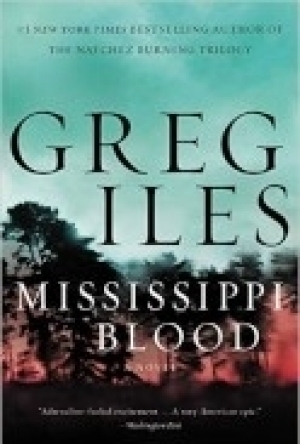
Mississippi Blood
Book
#1 New York Times Bestselling Author The endgame is at hand for Penn Cage, his family, and the...
Matthew Krueger (10051 KP) rated Training Day (2001) in Movies
Jun 11, 2020
King Kong Ain't Got Shit On Ms
I love this movie, i have seen it about 5-7 times now. It is on my top ten films of all time. I love Denzel Performace, he played as a excellent villian, and he should do it more often, cause he doesnt play the villian that much, the only other film I can think of is "American Gangster" and thats it.
The plot: Police drama about a veteran officer who escorts a rookie on his first day with the LAPD's tough inner-city narcotics unit. "Training Day" is a blistering action drama that asks the audience to decide what is necessary, what is heroic and what crosses the line in the harrowing gray zone of fighting urban crime. Does law-abiding law enforcement come at the expense of justice and public safety? If so, do we demand safe streets at any cost?
In June 2003, the American Film Institute named Alonzo Harris the 50th greatest screen villain of all time in its list AFI's 100 Years...100 Heroes & Villains.
Also excellent quotes like..
"You gotta be a wolf to catch a wolf."
"You gotta control your smiles & cries because that's all you have & nobody can take that away from you."
"You wanna go to jail or you wanna go home?"
"To protect the sheep you gotta catch the wolf, and it takes a wolf to catch a wolf."
"I've been planning this all week, son. You talk that crazy shit, I'll make sure that blood gets to the lab. You wanna walk your baby nuts around the block, you won't make it to the corner, but if you're cool, if you're cool... then you're a hero. You're a virgin shooter above suspicion."
"You don't know any stories? Okay, I'll tell you a story. This is a newspaper. It's 90 per cent bullshit, but it's entertaining. That's why I read it, because it entertains me. You won't let me read it, so you entertain me with your bullshit. Tell me a story, right now."
"This shit's chess, it ain't checkers."
"You got a dick. You do have a dick, don't you? Okay, the dick lines up straight like that right? To the right of it and to the left of it are pockets, right? In those pockets are money. Look in either one of 'em, pay the bill."
And of course..
"Aww, you motherfuckers. Okay. Alright. I'm putting cases on all you bitches. Huh. You think you can do this shit... Jake. You think you can do this to me? You motherfuckers will be playing basketball in Pelican Bay when I get finished with you. SHU program, nigga. 23 hour lockdown. I'm the man up in this piece. You'll never see the light of... who the fuck do you think you're fucking with? I'm the police, I run shit around here. You just live here. Yeah, that's right, you better walk away. Go on and walk away... 'cause I'm gonna' burn this motherfucker down. King Kong ain't got shit on me. That's right, that's right. Shit, I don't, fuck. I'm winning anyway, I'm winning... I'm winning any motherfucking way. I can't lose. Yeah, you can shoot me, but you can't kill me."
Its a excellent, phenomenal movie and a must watch film.
The plot: Police drama about a veteran officer who escorts a rookie on his first day with the LAPD's tough inner-city narcotics unit. "Training Day" is a blistering action drama that asks the audience to decide what is necessary, what is heroic and what crosses the line in the harrowing gray zone of fighting urban crime. Does law-abiding law enforcement come at the expense of justice and public safety? If so, do we demand safe streets at any cost?
In June 2003, the American Film Institute named Alonzo Harris the 50th greatest screen villain of all time in its list AFI's 100 Years...100 Heroes & Villains.
Also excellent quotes like..
"You gotta be a wolf to catch a wolf."
"You gotta control your smiles & cries because that's all you have & nobody can take that away from you."
"You wanna go to jail or you wanna go home?"
"To protect the sheep you gotta catch the wolf, and it takes a wolf to catch a wolf."
"I've been planning this all week, son. You talk that crazy shit, I'll make sure that blood gets to the lab. You wanna walk your baby nuts around the block, you won't make it to the corner, but if you're cool, if you're cool... then you're a hero. You're a virgin shooter above suspicion."
"You don't know any stories? Okay, I'll tell you a story. This is a newspaper. It's 90 per cent bullshit, but it's entertaining. That's why I read it, because it entertains me. You won't let me read it, so you entertain me with your bullshit. Tell me a story, right now."
"This shit's chess, it ain't checkers."
"You got a dick. You do have a dick, don't you? Okay, the dick lines up straight like that right? To the right of it and to the left of it are pockets, right? In those pockets are money. Look in either one of 'em, pay the bill."
And of course..
"Aww, you motherfuckers. Okay. Alright. I'm putting cases on all you bitches. Huh. You think you can do this shit... Jake. You think you can do this to me? You motherfuckers will be playing basketball in Pelican Bay when I get finished with you. SHU program, nigga. 23 hour lockdown. I'm the man up in this piece. You'll never see the light of... who the fuck do you think you're fucking with? I'm the police, I run shit around here. You just live here. Yeah, that's right, you better walk away. Go on and walk away... 'cause I'm gonna' burn this motherfucker down. King Kong ain't got shit on me. That's right, that's right. Shit, I don't, fuck. I'm winning anyway, I'm winning... I'm winning any motherfucking way. I can't lose. Yeah, you can shoot me, but you can't kill me."
Its a excellent, phenomenal movie and a must watch film.
Hazel (1853 KP) rated The Professor (McMurtrie and Drake Legal Thrillers #1) in Books
Dec 17, 2018
<i>I received this book for free through Goodreads First Reads.</i>
<i>The Professor</i>, a legal thriller by American author Robert Bailey, is a well-written novel about an investigation into a fatal car crash. A collision between a speeding truck and a family car resulted in the death of all four people in the vehicles. The mother of one of the deceased is determined to find out the truth about what happened and so enlists the help of an old friend, Thomas McMurtrie, the Professor.
Although everything revolves around the upcoming trial, the story is really focused on two people in particular. One is the aforementioned Professor and the other is an ex-student of his, Rick Drake. Tom used to be a lawyer but after persuasion from Coach Paul Bryant he took up a position at the University of Alabama teaching law. Now at 68 years old he is forced into retirement. Rick Drake, on the other hand, is a young and struggling lawyer, who after punching Tom due to his hot headedness is finding it difficult to pick up work. Putting aside their differences, the two of the come together to try and win this court case. The opposition, however, seem determined to make that impossible by using any means possible.
The prologue initially misled me. It explains how Tom became a professor in 1969 by detailing his meeting with Coach Paul Bryant who is more often referred to as the Man. This title, as well as the capitalization, led me to believe that he would be a sinister, untrustworthy character in this story. That turned out not to be the case – nor was he even in it, having long passed away. He was known as the Man in the same way that Tom is known as the Professor, due to respect and admiration.
There were times when I did not like what was happening in the novel, particularly the murders of Rick’s key witnesses, but once the trial actually began it got really exciting with the pace picking up as I hoped that everything would resolve itself.
For those who love crime novels this is a definite read. I cannot be entirely sure but the caption on the back cover “The First McMurtrie & Drake Investigation” implies that this could become a series rather than a standalone story; in which case it would be interesting to discover what the pair do next.
<i>The Professor</i>, a legal thriller by American author Robert Bailey, is a well-written novel about an investigation into a fatal car crash. A collision between a speeding truck and a family car resulted in the death of all four people in the vehicles. The mother of one of the deceased is determined to find out the truth about what happened and so enlists the help of an old friend, Thomas McMurtrie, the Professor.
Although everything revolves around the upcoming trial, the story is really focused on two people in particular. One is the aforementioned Professor and the other is an ex-student of his, Rick Drake. Tom used to be a lawyer but after persuasion from Coach Paul Bryant he took up a position at the University of Alabama teaching law. Now at 68 years old he is forced into retirement. Rick Drake, on the other hand, is a young and struggling lawyer, who after punching Tom due to his hot headedness is finding it difficult to pick up work. Putting aside their differences, the two of the come together to try and win this court case. The opposition, however, seem determined to make that impossible by using any means possible.
The prologue initially misled me. It explains how Tom became a professor in 1969 by detailing his meeting with Coach Paul Bryant who is more often referred to as the Man. This title, as well as the capitalization, led me to believe that he would be a sinister, untrustworthy character in this story. That turned out not to be the case – nor was he even in it, having long passed away. He was known as the Man in the same way that Tom is known as the Professor, due to respect and admiration.
There were times when I did not like what was happening in the novel, particularly the murders of Rick’s key witnesses, but once the trial actually began it got really exciting with the pace picking up as I hoped that everything would resolve itself.
For those who love crime novels this is a definite read. I cannot be entirely sure but the caption on the back cover “The First McMurtrie & Drake Investigation” implies that this could become a series rather than a standalone story; in which case it would be interesting to discover what the pair do next.
